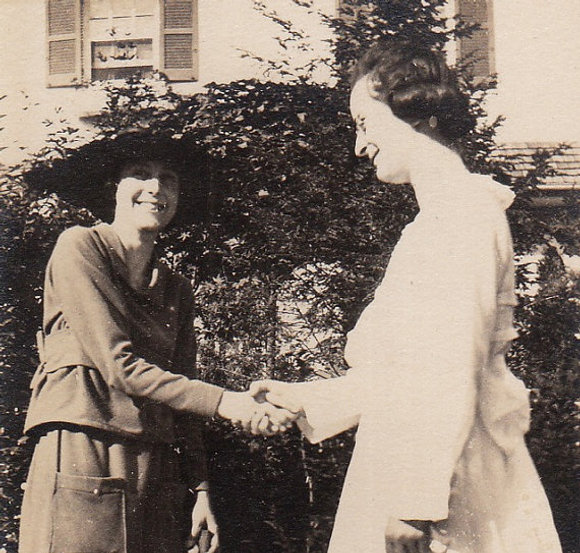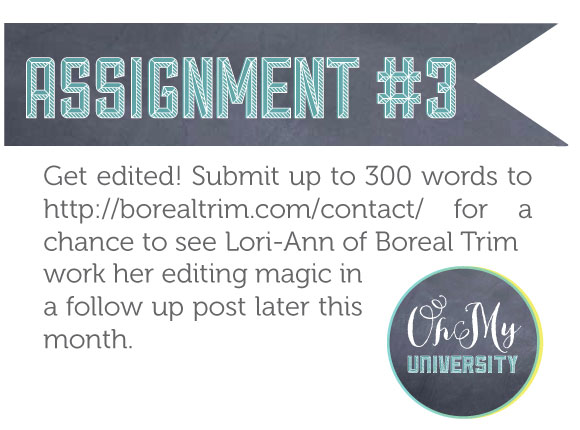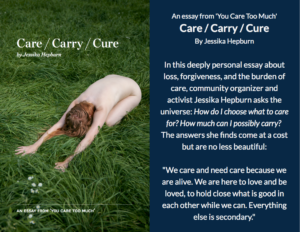
Jessika and I met. There we were: editor + editor. But our roles are so different! How can we share the same job title? Language breaks down all the time, but never more so when we decide to use the same word for reasonably different things.
editor=what?
At Oh My Handmade Goodness, Jess is the kind of editor who curates themes. She decides that this will be Oh My University month or recipe-collecting month. She herds her writers and wrangles their story themes into a consistent bunch; all to serve the greater good of her website.
Me: I take words that are already laid down, rearrange, delete, and add—all while attempting to do no harm—and make a discrete, perfectly understandable piece from them. I work on articles, stories, books—all in the same way. I work with authors to make sure that their absolute best message is heard by their number one intended audience. Like a copyeditor, only working in the bigger picture too.
the difference is in the communication
The beginning of the creative process for me is meeting my author. I want to know a bit about your voice. That is, what do you sound like? What does your writing sound like? Or, what part of your personality would you like to portray in this work? Closely tied to voice is tone: tone encompasses the level of formality you write in and what types of feelings you portray through you words. Tone connects closely to your audience, and good writing is all about audience.
Meeting my authors is one of the best parts of my job, because it is so human. I begin to get a sense of the purpose of their writing; what they hope to achieve. At best, I am a collaborating part of their dream. Forget any ideas you had about red pens and criticism! At best, this works like a kind of partnership: you have a goal and the words, and, together, we hone them to make the best message. Sometimes, your writing direction changes, or a service offering shifts based on my questions about what words we might use. I see editing as a discussion, where my notes and changes are suggestions to you. If you don’t care for them, I’m happy to talk about my reasons why I even brought them up; and I’m happy to drop them. Sometimes, the document can go back and forth 2-3 times (or more, in a larger piece) in order to work out the best result.
Accuracy, then, is the final point and the foundation of good editing. You want your words to be conveyed in a way that sounds like you, to the audience(s) you know, by way of appropriate grammar and sentence construction and proper spelling.
editing = creative + impeccable
So, let’s talk. Who wants to check out the editing process? I’ll meet with the first two people who send me their writing to borealtrim.com/contact. Maximum 300 words. Go on. Do it. I’ll be back later this month to share how the oh my handmade real-time editing project has gone! (That’s right—people will see your work.) Fear not the red pen! You know, it might be fun!
Or tell me your best experience in working with an editor. Or your best hopes for what it might be like.


